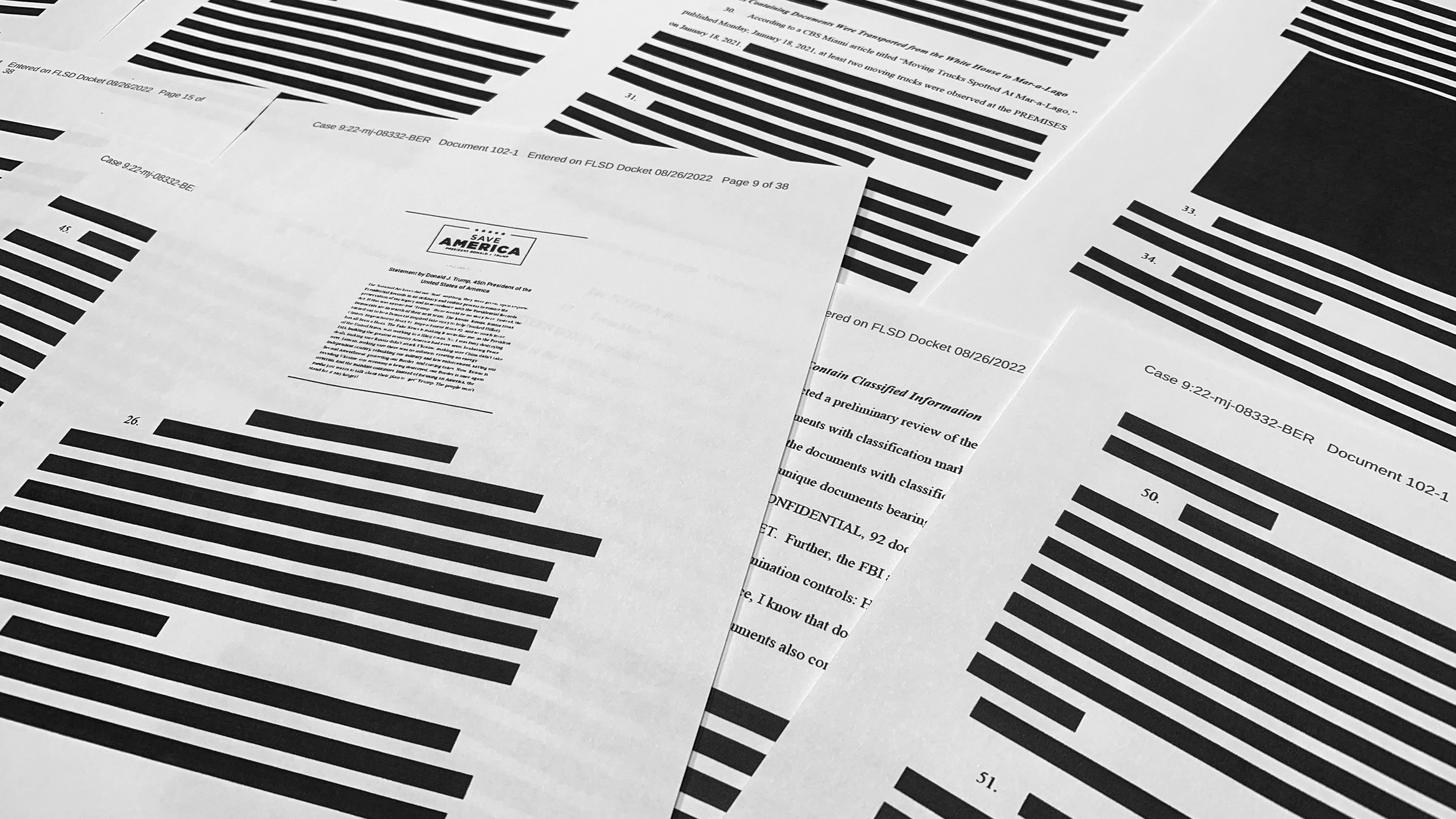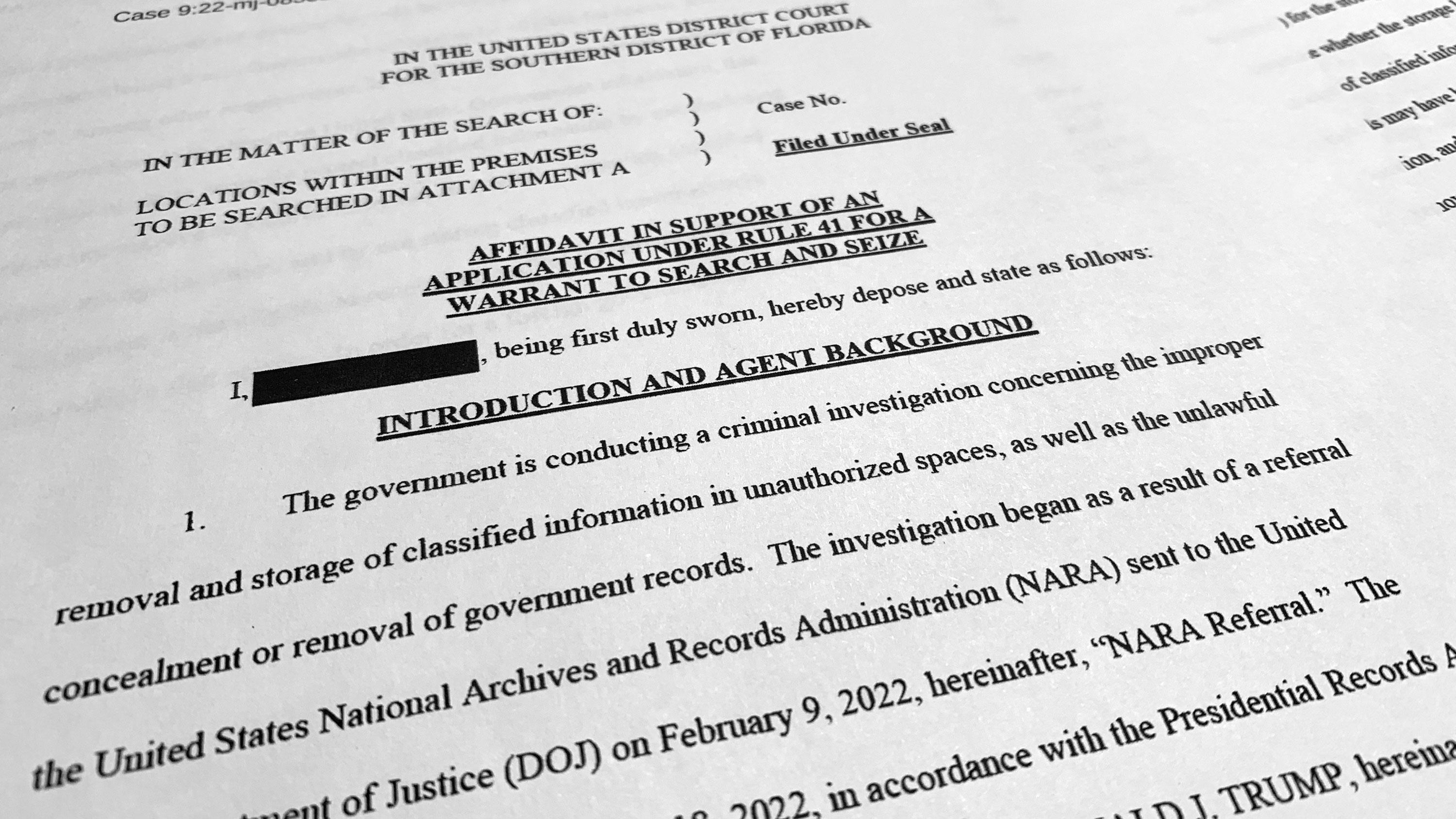
The redacted Mar-a-Lago search warrant affidavit released Friday shows that federal investigators addressed the question of a president’s authority to declassify documents, though much of that section is redacted.
The affidavit says that former President Trump’s counsel asked the Justice Department “to consider a few ‘principles,’ including the claims that the President has “absolute authority to declassify documents.”
The affidavit also cites a claim from Kash Patel, a former Trump national security aide who was named as one of Trump’s designees to the National Archives in June. The investigator who wrote the affidavit cited a May article from right-wing website Breitbart, in which Patel claimed reports that the National Archives found classified material at Mar-a-Lago were “misleading” because Trump had declassified the materials.
The rest of the section in the affidavit, however, is classified, so it’s not clear why federal investigators cited Patel’s comments.
Since the FBI’s search, Trump has pointed to a Jan. 19, 2021, memo in which he declassified documents related to the FBI’s Russia investigation. There’s no evidence, however, that those materials were what the FBI was looking for when it searched Mar-a-Lago earlier this month.
